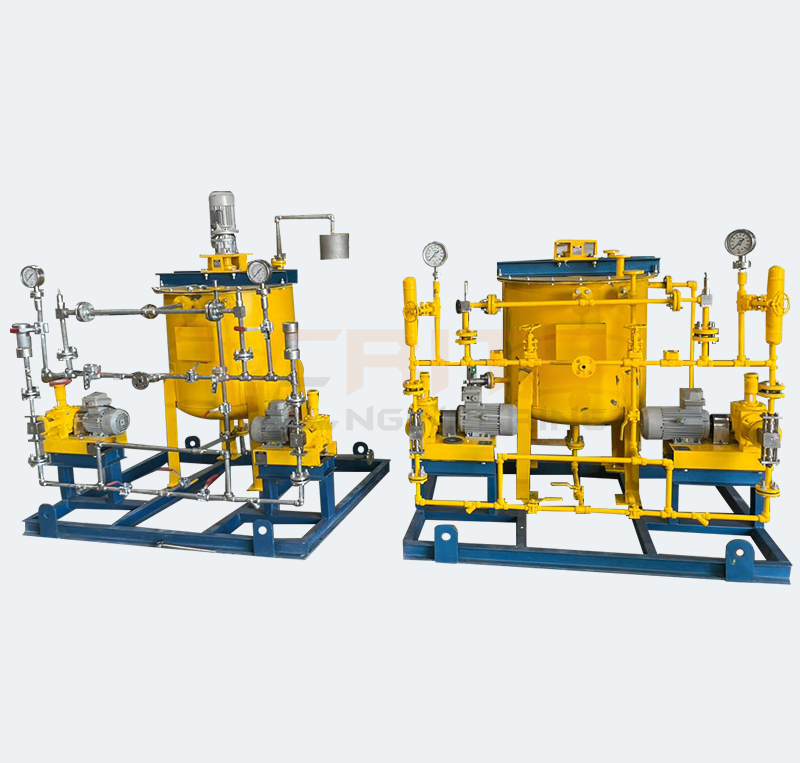
Get Your Free Quote…!


Purpose: HP dosing system in a power plant is to maintain the proper pH level of the boiler feedwater and prevent corrosion and scaling.
Overview: An HP (high-pressure) dosing system in a power plant is to inject a precise amount of chemicals, typically ammonia or an ammonia derivative, into the feedwater of a boiler at high pressure to maintain the proper pH level and prevent corrosion and scaling.
The HP dosing system typically includes a storage tank for the chemical solution, a dosing pump or pumps, and instrumentation to measure the pH level of the feedwater and control the dosing rate. The system is designed to deliver the correct amount of chemical to the boiler, which can vary depending on factors such as boiler load, feedwater temperature, and the quality of the feedwater.






At Verito Engineering Private Limited, we specialize in providing comprehensive engineering analysis and calculations for Skid-Mounted Chemical Injection Packages, ensuring superior performance, reliability, and compliance with global industry standards.
Our expertise covers Finite Element Analysis (FEA), Computational Fluid Dynamics (CFD), Structural, Mechanical, Hydraulic, and Thermal Calculations for all critical skid components, including:

| Pressure Vessel Calculations | API 675-Compliant Dosing Pump Selection & Sizing | Agitator & Mixing Calculations (For Chemical Preparation Skids) |
|---|---|---|
|
|
|
| Automation & Instrumentation for Optimized Operations | Piping Stress & Pressure Calculations | Structural & Skid Frame Analysis |
|
|
|
| Strainer Calculations | Safety & PSV Sizing Calculations | Injection Quill |
|
|
|
| Material Selection & Corrosion Analysis | Operational Efficiency & Cost Reduction | |
|
|
Maintaining the correct pH level in the boiler feedwater is critical to the safe and efficient operation of the power plant. If the pH level is too low, the water can become acidic and corrode the boiler tubes, leading to leaks and other damage. If the pH level is too high, scaling can occur, reducing the efficiency of the boiler and potentially causing blockages.
Therefore, the HP dosing system plays an important role in ensuring the long-term reliability and efficiency of a power plant.
Supplied to:
1 World’s One of the Top Multi-national Company in the
Beverage Industries.
2 One of India's biggest aluminum manufacturing company and the world's largest flat-rolled products player and recycler of aluminum
3 India’s Leading power plant company with a combined capacity of 1,391 MW
Project:
1. Coca-Cola Company.
2 Hindalco
3 JSW
4 Wacot Rice,
Nigeria
Technical Aspects: Available in ATEX, CE, ASME, API, IS…..etc.